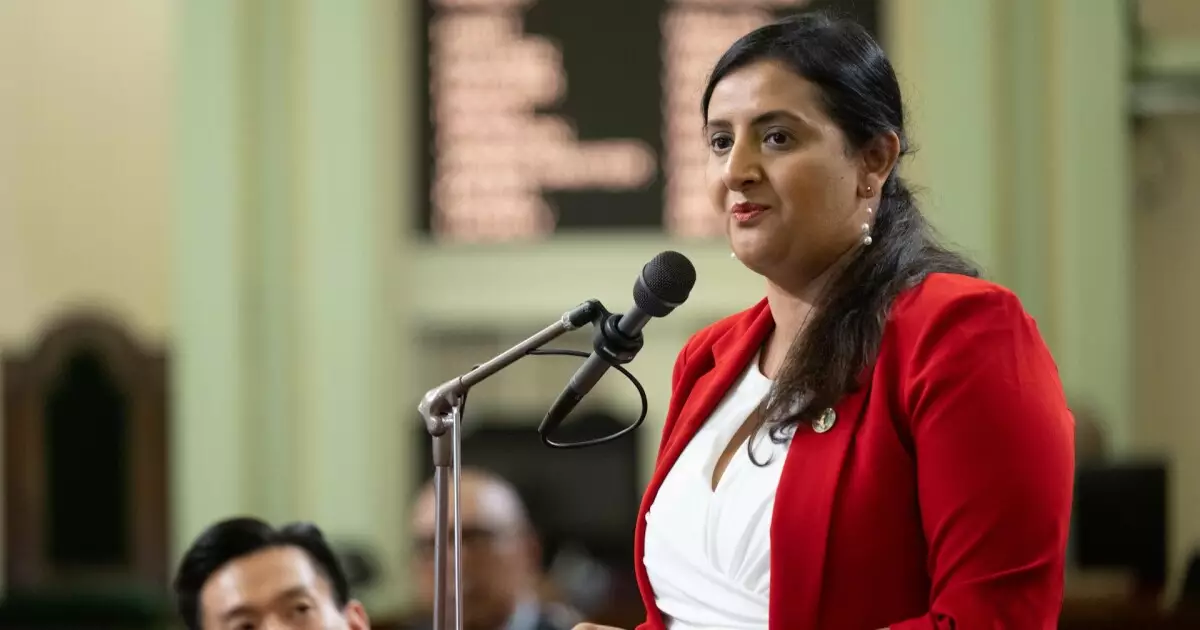Why California’s $2.8 Billion Medi-Cal Gamble Could Lead to Disaster

California Governor Gavin Newsom’s recent decision to pass a supplemental budget bill allocating $2.8 billion towards Medi-Cal raises critical questions about fiscal responsibility and accountability. This budget adjustment not only adds to the health program’s existing financial challenges but also aligns with a broader agenda of expanding healthcare access to undocumented immigrants. While proponents celebrate this gesture as a step toward inclusivity, it rings alarms for anyone concerned about the sustainability of California’s finances, especially in an era of economic uncertainty.
Medi-Cal, California’s Medicaid program, is vital for millions, yet the spiral of ever-increasing costs cannot be overlooked. With the projected costs for this expansion ballooning from an initial estimate of $6.5 billion to nearly $9.5 billion, the question remains: who will ultimately bear the burden? The state’s expenditure on Medi-Cal has surged significantly, nearly doubling in six years to an astounding $42.1 billion. The implication of this decision extends far beyond undocumented immigrants; it impacts the entire state’s budgetary fabric, potentially leading to cuts in other essential services.
Local Governments in the Crossfire
Newsom’s budget bill doesn’t stop at healthcare; it also attempts to soothe the wounds inflicted by recent wildfires in Los Angeles, endeavoring to backfill lost property tax revenue and allocate funds for forest resilience. However, this may merely be a band-aid on larger systemic issues. Local governments, grappling with their own budget constraints, are put in a precarious position as they juggle the ramifications of both escalating costs due to expanded welfare programs and the tangible devastation of natural disasters.
The fire-related expenditures seem to serve as a façade. On one hand, it may look like a responsible approach to disaster management; on the other, it signals a reactive instead of proactive strategy—a government scrambling to catch up rather than one that anticipates and plans for crises. With limited resources at their disposal, local agencies are left to wonder whether this funding will truly translate into sustained support or just a temporary fix among a slew of competing demands.
Politicization of Healthcare: A Dangerous Precedent
The fissures within the California legislature over Assembly Bill 100 highlight a deeper political divide. Republicans, objecting mainly to the funding allocated for undocumented immigrant healthcare, argue that such decisions amount to misallocation of taxpayer resources. Assemblymember Carl DeMaio’s critique reveals an unsettling reality—that expanded Medi-Cal coverage could jeopardize the healthcare system for the legal and tax-paying residents of California.
The defense offered by Democratic legislators, including Assemblymember Jasmeet Bains, hinges on a narrative that covering the undocumented would ultimately reduce costs by ensuring preventive care instead of costly emergency services. However, this line of reasoning, while altruistic in intent, may gloss over the broader economic implications. When fiscal responsibility is sidestepped in favor of moral imperatives, we inevitably endanger future funding for critical services that everyone, regardless of immigration status, relies on.
Democrats advocate for a healthcare system that is fair and accessible but must also confront the reality of escalating expenses. Can we truly afford to provide generous benefits to a population not contributing to the tax revenue that funds these services? This effectively prioritizes a political agenda over sustainable fiscal policies and broadens the burden for the state’s taxpayers.
Looking Ahead: The Future of California’s Budget
As California continues down this path of spending without corresponding revenue increases, the specter of an unsustainable financial future looms larger. Lawmakers must grapple with the dual challenge of addressing immediate humanitarian needs while safeguarding the financial health of the state. The allure of expansive programs, undoubtedly well-meaning, risks derailing California’s economic stability.
The budget proposed by Governor Newsom represents a complex web of fiscal decisions, each with its own potential repercussions. If California does not rein in its spending, there’s no telling what sacrifices might be necessary down the line. This scenario invites a crucial reflection: should compassion in policy-making be coupled with an unwavering commitment to financial prudence? As debated in the halls of the legislature, the answer might define the future trajectory of not just Medi-Cal, but of California itself.





